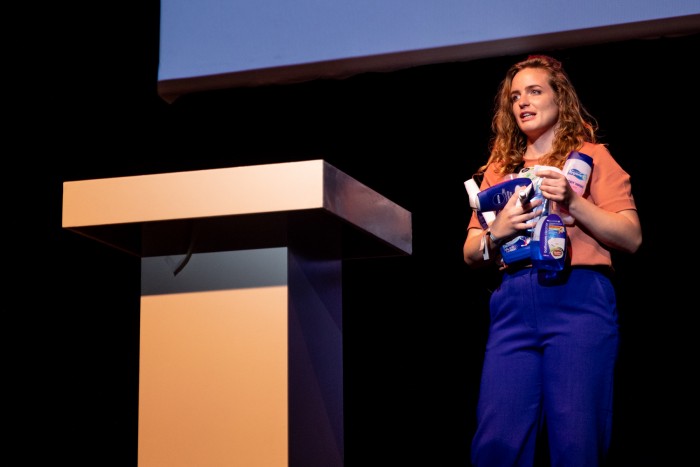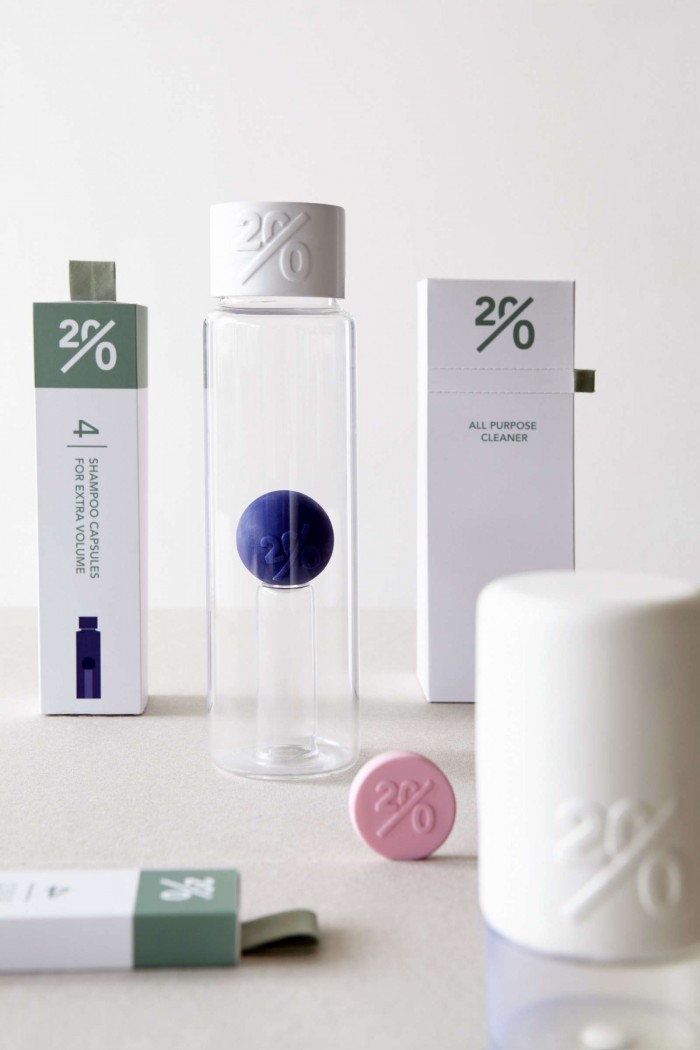Stepping onto the stage arms filled with groceries, Mirjam de Bruijn asked the Design Indaba audience if they recognised this all-too familiar situation. What she means is that situation where you refuse to a buy a bag so you end up lugging these heavily-packaged products around.
Beyond their packaging, these products are also made up of 80 to 95 per cent water - a water cost that is literally invisible to the consumer. Not to mention the carbon cost of transporting them from factory, to supermarket to household.
“It’s not just my energy that gets drained carrying these products from the supermarket… it also means that 4 out of 5 trucks filled with these products are basically transporting water across the globe,” says de Bruijn.
The status quo inspired her to find a more sensible solution. While her proposals to big manufacturers were not met with favour, she persisted with the idea.
De Bruijn jokingly says she suffers from a “science disability” but recognises the power and responsibility that design can play in this scenario.
“I don’t know why consumers don’t read labels. Is it really the consumer who’s lazy or is it the designer’s fault who didn’t come up with a more intuitive dosing system?”
Her graduate project, called Twenty, reduces the product down to its simplest state in capsule form without the water element. The consumer would then add water before use in the household, eliminating the water and carbon costs between manufacture and the product’s final destination.
The high quality ingredients are accompanied by subtle branding, which is a far cry from the loud, over-zealous branding that litters supermarket isles.
Twenty has garnered multiple awards for de Bruijn including the opportunity to build her own team to further the research and product development. With a greater concern for the industry at large, she intends to share her team’s findings with big manufacturers in order to impact real change.
She cites her lack of experience as a strength too, saying: “We’re not held back by years of research and assumptions based on this because we don’t have any experience.”
The first dissolvable Twenty capsule is expected to launch early 2020.
Watch the talk:
Watch more talks from Design Indaba Conference 2019:
Tshepo Mkholo on the Ruhehe School in Rwanda
Carolien Niebling is creating the sausage of the future
Ida is a non-invasive, painless way to test blood/glucose levels









